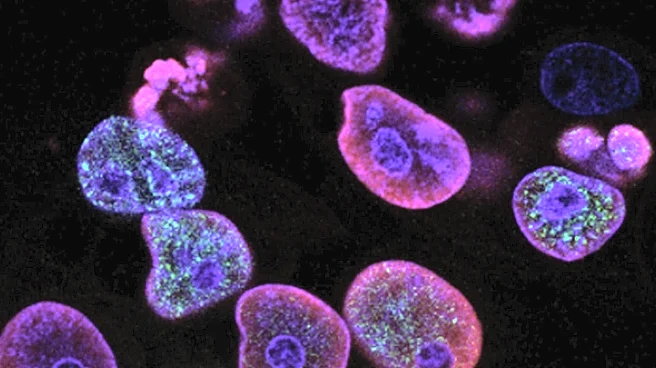What's Happening?
A study conducted by the Postgraduate Institute of Medical Education and Research in Chandigarh has revealed that microplastics, found in everyday items such as bottled water, seafood, and salt, pose significant health risks. These tiny particles can accumulate in the human body, attaching to the intestinal wall and causing inflammation. The study, published in the Indian Journal of Gastroenterology, highlights the potential for microplastics to disrupt gut bacteria, weaken the immune system, and increase the risk of chronic illnesses. The findings emphasize the need for public awareness and stricter policies to combat plastic pollution.
Why It's Important?
The presence of microplastics in common foods and their potential health impacts represent a growing public health concern. As microplastics can disrupt gut health and compromise the immune system, they pose a risk of chronic diseases and infections. This study underscores the urgent need for global action to reduce plastic pollution and protect public health. The findings also highlight the importance of individual actions, such as reducing the use of plastic products and opting for natural materials, to mitigate exposure to microplastics. The call for stricter policies aligns with broader environmental efforts to address plastic pollution at its source.
What's Next?
The study's authors advocate for increased public awareness and policy changes to address the issue of microplastics. Individuals are encouraged to make lifestyle changes, such as avoiding plastic bottles and choosing fresh foods over packaged ones. On a larger scale, the implementation of global policies like the Global Plastic Treaty could play a crucial role in reducing plastic production and pollution. Continued research and advocacy are essential to drive policy changes and promote sustainable practices that protect both human health and the environment.








